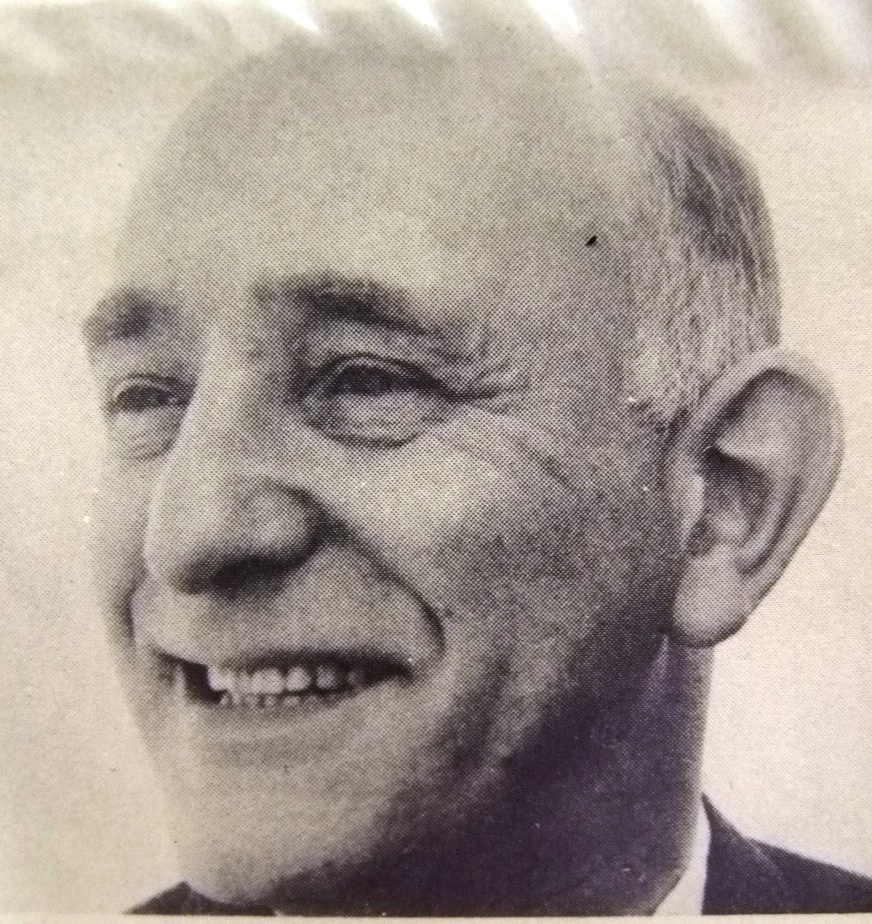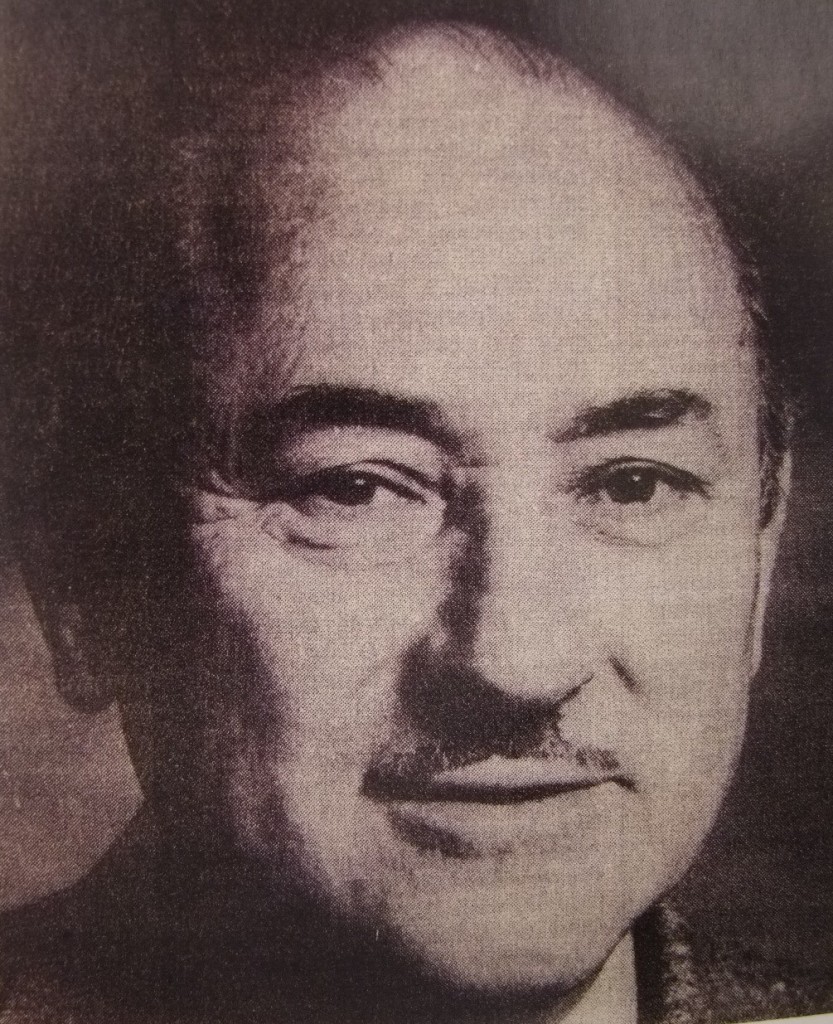
Kieran’s Our City, Our Town, Cork Independent,
12 August 2010
In the Footsteps of St. Finbarre (Part 224)
Politics and Literary Treasures
Gerald Goldberg had a long career with enormous and varied interests in politics and culture. The numerous articles and books collected in Cork City Library pertaining to his work reveal a passionate and energetic man, not afraid to comment on the importance of the arts in building Ireland’s identity but also speaking out against atrocity.
In 1967, Gerald, who had built up a successful legal practice as a criminal lawyer, entered local politics running as an Independent councillor candidate in the south east ward of Cork City. Securing a seat, he spent seven years as an Independent before joining Fianna Fáil, argued as an attempt to be in the running of being Lord Mayor. Cork Corporation elected him Lord Mayor in 1977. During his speech, the new Lord Mayor spoke in Irish and then in Hebrew. He said he was a Corkman born and bred and was proud of his city and people. During his year as Lord Mayor of Cork in 1977, he received death threats which he blamed on unbalanced media reporting on the Israeli army’s invasion of Lebanon in 1982 and the death of two Irish peacekeeping soldiers there. As a result he considered leaving Ireland. The synagogue in Cork was fire-bombed at the time. Israel’s relations with Ireland were strained for many years because of the issue of Irish peacekeepers being injured or killed while serving in Lebanon. Protests, appeals and anti-semitic comments/abusive phone calls were often received during those years by Jewish community offices.
Gerald had an acute interest in the arts. When he was a student, he began a collection of gramophone recordings of rare and classical music. In time he was a governor of the National Gallery of Ireland, a member of the Irish Contemporary Art Society and of the Irish Graphic Society. He had a keen interest in history especially local history of Cork and published a number of books including The Adventurers of Cork; A History of the Jews of Cork and Johnathan Swift and contemporary Cork. He also contributed the article on the Jews of Ireland in the Encyclopedia of Ireland and a chapter on Cork to the History of the Jews in Ireland. In his book on Jonathan Swift, he noted his interest in biblical archaeology, the study of the Old and New Testaments, English and European literature, the collection of oil paintings, drawings, sculptures, rare books and first editions.
In the Cork Review of 1993 (republished by Cork City Library in 2008), Gerald, in an introduction to the work of his nephew David Marcus, writes about the needs for personal expression. David, himself, was a writer of novels and short stories and an editor of numerous anthologies of Irish fiction and poetry such as the Phoenix Irish Short Stories collections. From 1946, he was a long serving editor of “New Irish Writing” in the Irish Press. He co-founded the page with Terence Smith and they edited it to 1957. Gerald in his reminisces writes about Terence as sitting next to him at school at Presentation College on the Mardyke and in time providing a strong influence in Gerald’s appreciation of English literature. The New Writing page provided a forum for aspiring Irish authors, publishing most of the most important names in Irish fiction, many for the first time, including Dermot Bolger, Ita Daly (whom David Marcus married), Anne Enright, Neil Jordan, Claire Keegan, John McGahern, Joseph O’Connor and Colm Tóibín.
The Irish Press was controlled by Eamonn de Valera and his family and aimed to express the ‘national outlook’ of the thoughts and sentiments of his party supporters and the process of modernisation. The Irish Press was aimed particularly at teachers and schools with strong GAA games and the promotion of the Irish language. Seán Lemass was an early managing director. Shareholders came from both Ireland and the United States.
David’s novel A Land Not Theirs (1968), a fictionalized account of the experiences of the Cork Jewish community during the Irish War of Independence, was a bestseller. In 1986 his second novel, which drew on his experiences among the Cork Jewish community, A Land in Flames was also a popular success. In 2001 Marcus published Oughtobiography – Leaves from the Diary of a Hyphenated Jew, an autobiographical review of his life as an Irish-Jewish person and as a figure in the field of Irish literature. On 3 June, 2005, he was awarded an honorary Degree of Doctor of Literature by the National University of Ireland, University College, Cork.
Such family connections and the positive mindset of creating opportunities for people and developing their talents seem to drive Gerald Goldberg’s values. His passion for collecting antiques was highlighted by the auction of his collection in 2004 consisting of pictures, bronzes, antique furniture, silver, porcelain and glass. As a patron to the arts he was deeply involved with the Cork Orchestral Society, Irish Theatre ballet and the lunchtime concerts in the Crawford College of Art and Design. Trawling through his work Gerard Goldberg has left many legacies but of the most important is perhaps the idea that building ideas and subsequent realities are very important in pushing a city’s identity forward whether that be in politics or the arts.
To be continued…
Captions:
Gerald Goldberg, late 1970s (source: portrait in his book, Jonathan Swift and Contemporary Cork)
David Marcus, writer and editor, nephew of Gerard Goldberg (source: The Lost Soul of the World, reprinted in 2008 by Cork City Library)
